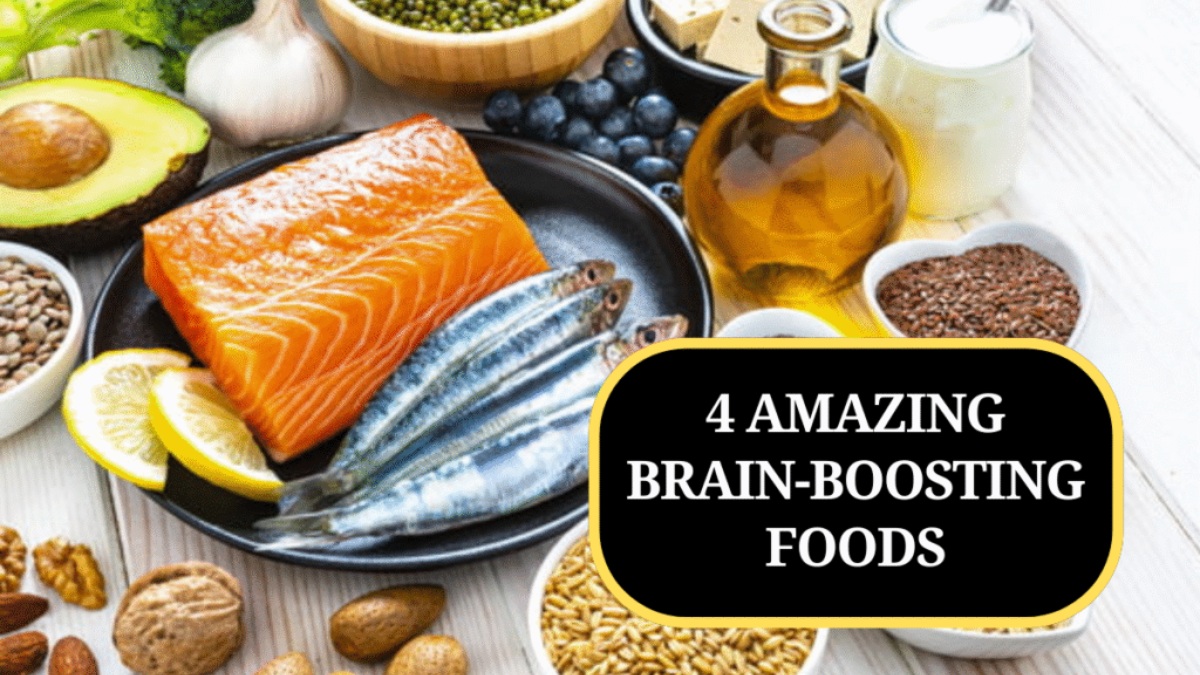The brain is our body’s command center, and it gives us the capability to think, understand, have feelings, and make decisions. In the case of a healthy and working brain, one tends to be more alert, have better memory, and do great in every activity. But on the other side, what if I tell you that your food could also be a determining factor in your brain’s health?
A stressful life, not getting enough sleep, and poor eating habits usually lead to symptoms like brain fog, memory loss, and tired of thinking in the present-day fast-paced world. But there are some natural foods that will raise one’s brain power and memory as well.
The so-called “brain-boosting foods” are packed with the essential nutrients for the brain, such as omega-3 fatty acids, antioxidants, vitamins, and minerals. Moreover, they nourish brain cells, improve the neuronal communication, and thereby enhance the process of thinking. Now, let us reveal 4 outstanding foods that will not let your brain get dull, unfocused, or slow.
1. Fatty Fish – Brain’s Best Friend
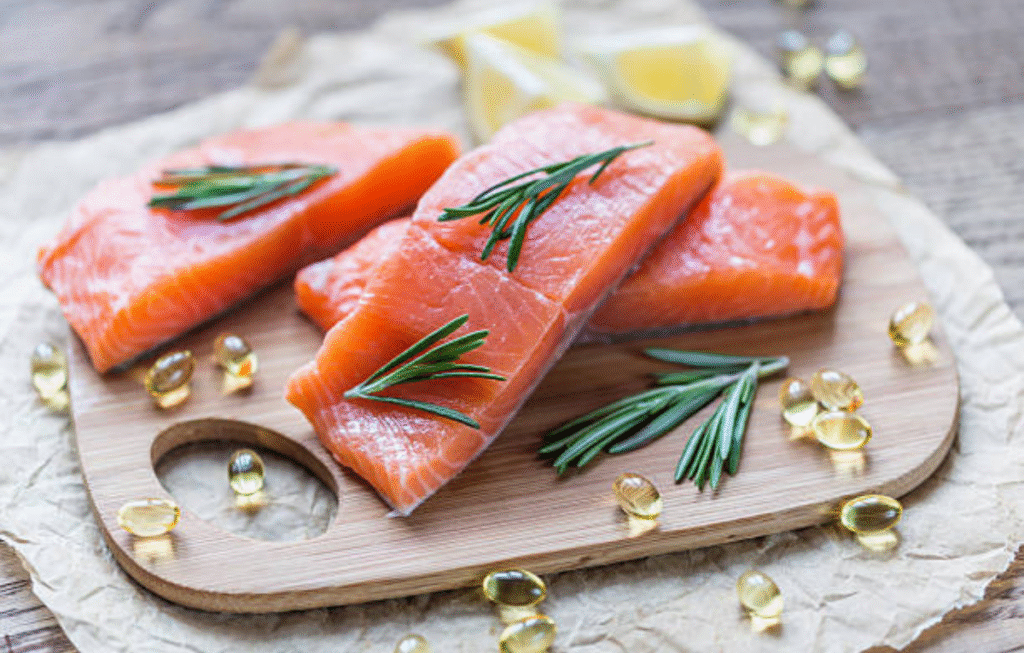
Fatty fish, like salmon, sardines, mackerel, and trout, come to mind whenever the question arises about the best foods for the brain. Fatty fish are full of omega-3 fatty acids, which are crucial in the development of brain cells and enhancing their communication with each other.
Brain Benefits:
- Enhances learning and memory:
Omega-3s assist in the formation of new neurons (brain cells). This enhances memory and learning. For instance, individuals who consume fish 2-3 times per week have reduced memory loss, even in old age. - Delays mental aging:
Brain function weakens with age. Omega-3 fatty acids decelerate this process and save against diseases such as Alzheimer’s. - Improve Mood and Concentrate
Omega-3s control neurotransmitters such as serotonin and dopamine, which enhances mood and enhances concentration.
How to Add:
- Grill salmon or trout lightly and have it with a salad.
- Include sardines or tuna in a sandwich or salad.
- Attempt to consume fish a minimum of 2–3 times a week.
Tip:
No problem. You can obtain plant-based omega-3s from chia seeds, flax seeds, and walnuts. You can also consume algae oil supplements, which offer the same nourishment as fish.
2. Blueberries – Nature’s Brain Protector
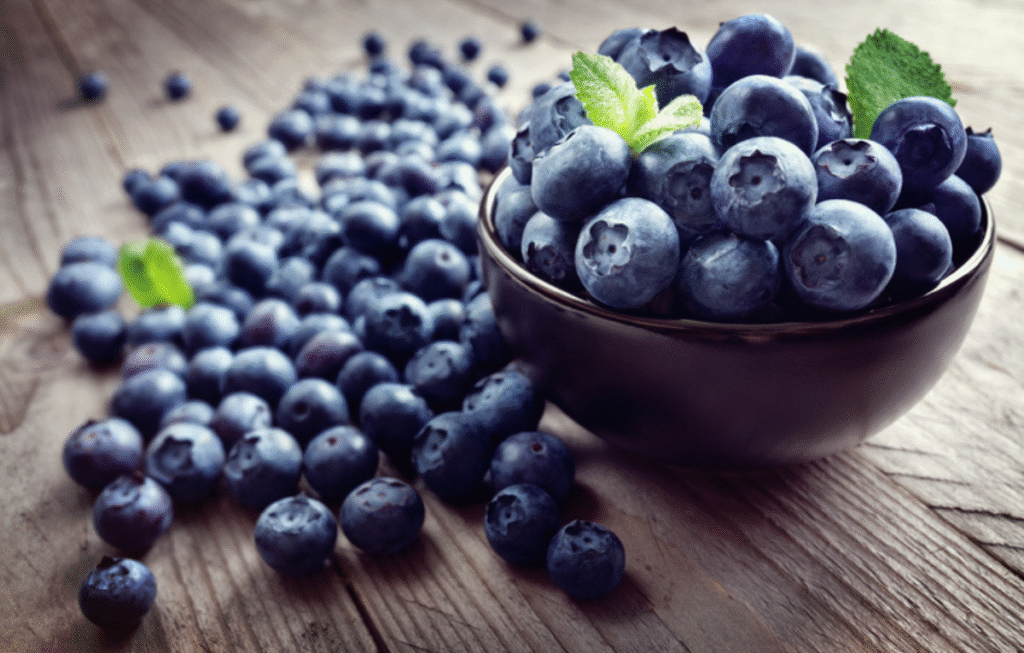
Little blueberries are very potent for the brain. They contain high levels of antioxidants and flavonoids, which shield the brain from oxidative stress. This stress speeds up brain aging and weakens memory.
Brain Benefits:
- Boosts neuron communication
Anthocyanins in blueberries fortify communication among brain cells, and it becomes simpler to remember things and stay focused. - Improves blood flow:
Blueberries enhance the supply of oxygen and nutrients to the blood, and the brain becomes more alert and conscious. - Delays mental aging:
A number of studies indicate that individuals who consume blueberries every day have brains that are about 2–3 years younger than their age.
How to incorporate them:
- Sprinkle a few blueberries over oatmeal or yogurt as breakfast.
- Have blueberries as a smoothie or as juice.
- Dried blueberries are also a wonderful snack to have—just select unsweetened ones.
Tip:
Combine blueberries with dark chocolate or walnuts—it’ll provide you with a tasty, double brain boost!
3. Leafy Green Vegetables – The Mind’s Green Powerhouse
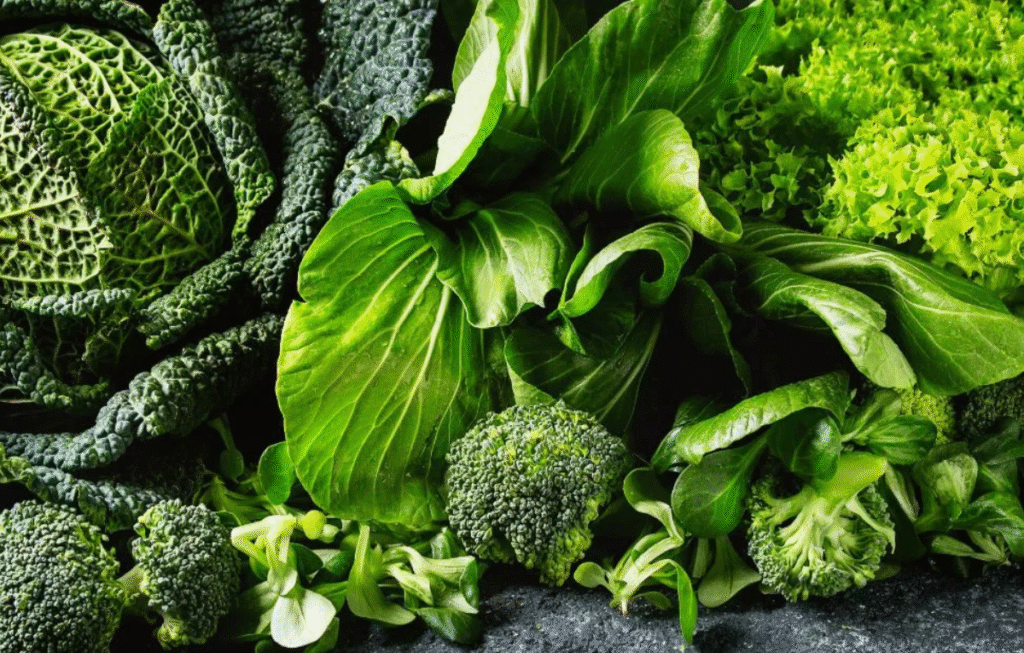
We’ve all heard the childhood adage, “Eat green vegetables, stay healthy.” But maybe we’re not aware that these vegetables are also good for our brains.
Spinach, kale, broccoli, fenugreek, mustard, and cabbage have nutrients such as vitamin K, lutein, folate, and beta-carotene, which preserve brain health and retard brain aging.
Brain Benefits:
- Prevents brain cells:
Vitamin K makes the brain cells strong and enhances memory. - Prevents brain fog:
Folate and lutein enhance energy flow in the brain, lowering issues such as fatigue and poor concentration. - Prevent Mental Aging:
Studies indicate that individuals consuming a bowl of green vegetables every day can maintain their brain as a youthful one up to 11 years.
How to Include:
- Prepare a smoothie of spinach, banana, and almond milk in the morning.
- Prepare a spinach, fenugreek, or broccoli curry for lunch or dinner.
- Use green leaves as a topping in salads, soups, or wraps.
Tip:
Don’t overcook green vegetables—steaming or simmering is the ideal way to avoid vitamin loss.
4. Nuts and Seeds – Tiny Powerhouses for Brain Power
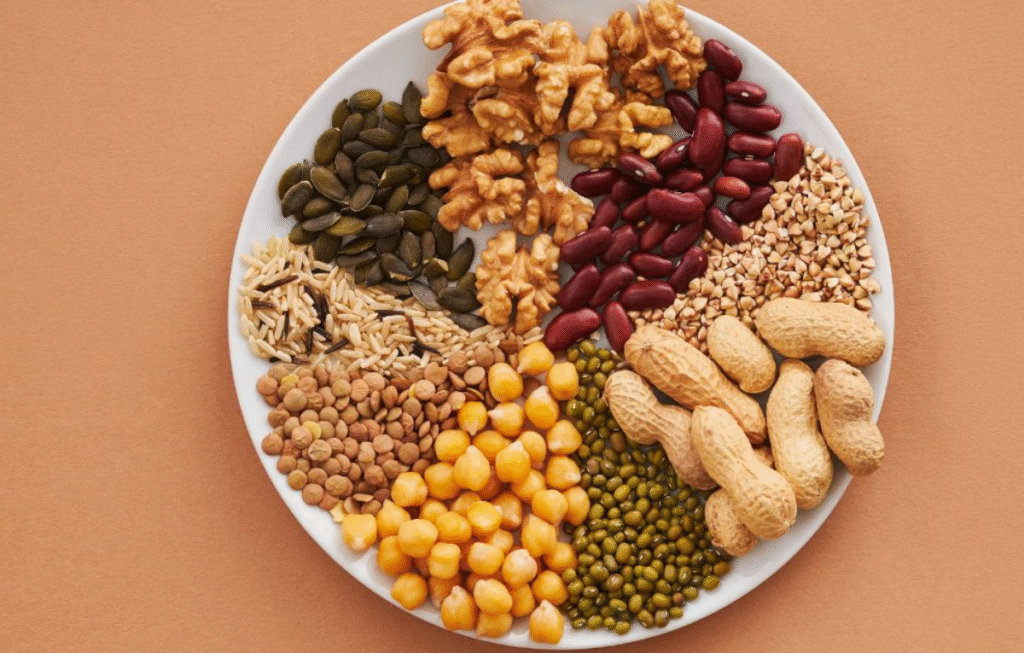
Nuts and seeds are the ultimate if a snack that is light, tasty, and nutritious is your choice. Almonds, walnuts, sunflower seeds, flax seeds, and pumpkin seeds contain high amounts of vitamin E, magnesium, zinc, and healthy fats—which nourish the brain and enhance memory.
Brain Benefits:
- Memory Protection:
Vitamin E acts as a protective barrier for the brain against free radicals, thus aiding in the retention of long-term memories. - Improves Focus and Energy:
Zinc and magnesium not only improve nerve cell intercommunication but also reduce mental fatigue. - Improves Mood:
Make it a point to eat a handful of nuts every day, and “feel-good” hormones released in the brain will cause a rise, stress will lessen.
How to Include:
- Chew on almonds or walnuts as a snack while working or studying.
- Mix flaxseeds or chia seeds in your breakfast smoothie or yogurt.
- Spread almond or peanut butter on bread.
Tip:
To preserve their natural goodness, always choose raw or lightly roasted nuts that do not have added salt and sugar.
Other Habits You Can Develop to Make Your Brain Strong
The brain’s health does not only depend on the diet you eat but also on some lifestyle habits.
- Hydration:
The brain is about 75% water. The body losing water can lead to headache, tiredness, and one not being able to concentrate properly. It’s advisable to drink at least 8 to 10 glasses of water in a day. - Rest:
The brain goes through the stuff it has learned and that it needs to know, and it also gets new energy by sleeping. A person would need to get 7 to 8 hours of slumber daily. - Workout:
It doesn’t have to be a rigorous workout; a 30-minute walk or a yoga session everyday can be sufficient for blood circulation to the brain and also for the creation of new brain cells. - Mental relaxation:
Constant stress can lead the brain in the area responsible for memory and learning to become smaller. Stress can be managed through meditation, yoga, and mindfulness practices. - Mind games:
Doing crosswords, book reading, learning a language, or practicing on a musical instrument – all these are activities for keeping your brain sharp.
Conclusion
The brain is the heart of your entire existence. It feeds on proper nutrition and then gives you an improved capacity for thinking, learning, and remembering. Apart from the above-mentioned, now is the time when you should definitely include the four amazing brain foods in your daily diet—fatty fish, blueberries, green leafy vegetables, and nuts and seeds.
These foods will not only improve your memory and concentration but also uplift your mood, increase your energy, and promote your mental well-being. Addition of these to a regular regimen of exercise, proper sleep, and stress-free living will keep your brain always sharp, agile, and creative throughout life regardless of your age.
FAQs:-
Which foods are best for boosting brain power?
Foods rich in omega-3s, antioxidants, and vitamins—like fatty fish, nuts, and berries—help improve focus, memory, and brain function.
How soon can I see results from eating brain-boosting foods?
With consistent intake, you’ll notice improved focus and energy within weeks, while long-term benefits strengthen overall brain health.
What role do leafy greens play in brain health?
Leafy greens like spinach and kale provide folate and vitamin K, essential for cognitive sharpness and long-term memory.
Medical Disclaimer
The information provided on Health Tips India is intended for educational and informational purposes only. It should not be considered a substitute for professional medical advice, diagnosis, or treatment.
Always consult a qualified healthcare professional before making any health-related decisions or changes to your diet, exercise, or medical routine.
SamhithaHealth & Wellness Content Writer
a Health & Wellness Content Writer with over 6 years of experience creating research-based health articles. She specializes in nutrition, weight management, diabetes care, skin health, and healthy lifestyle practices. Here content is carefully written using trusted medical and scientific sources to ensure accuracy and clarity for readers.

